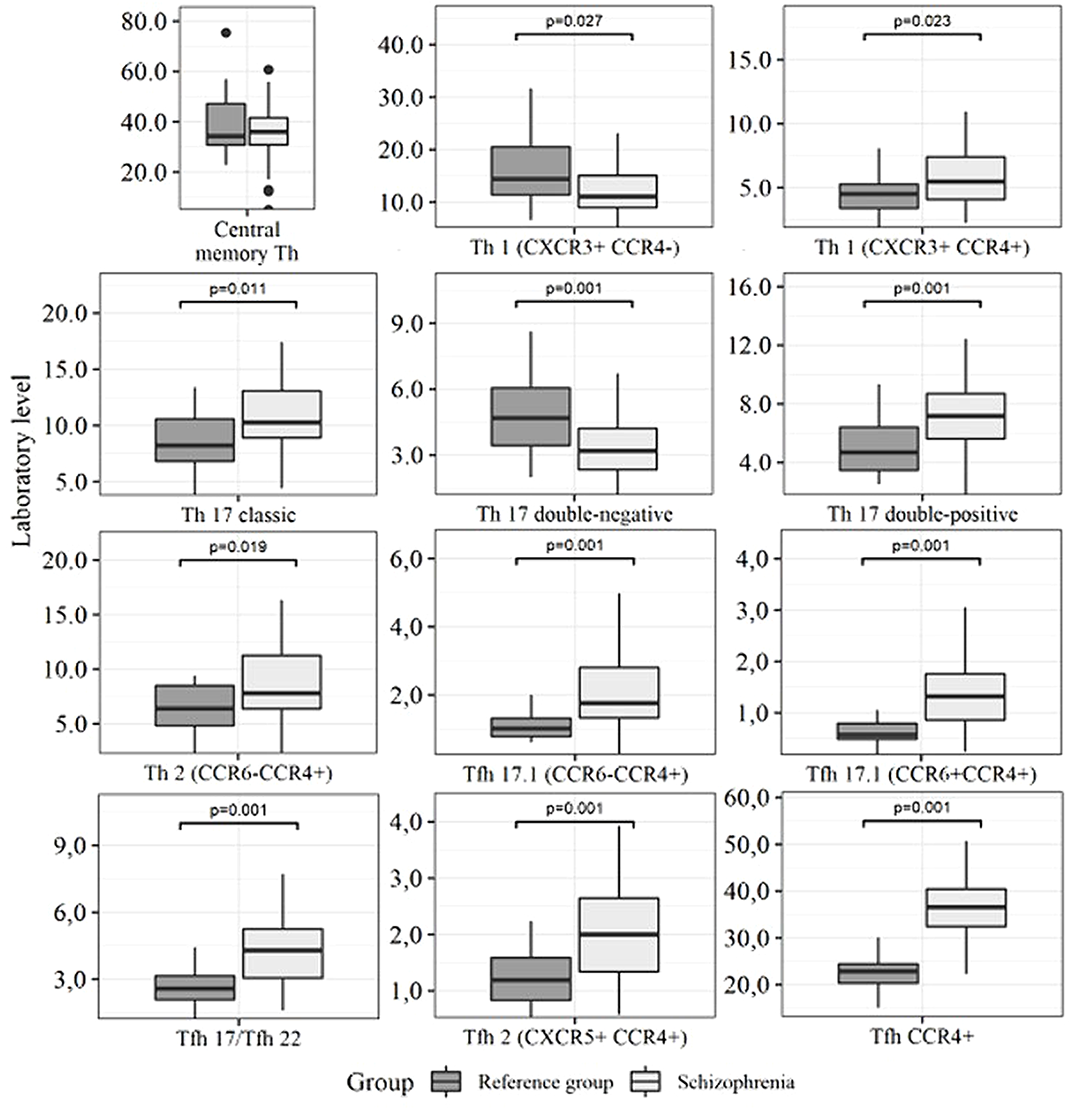No CrossRef data available.
Article contents
Clinical and immunological profile of patients with schizophrenia
Published online by Cambridge University Press: 01 September 2022
Abstract
The question of the involvement of inflammatory and autoimmune processes in schizophrenia pathogenesis has become the most relevant in the last decade and yet is not fully understood.
The study included 60 patients with paranoid schizophrenia (age 18 - 55 y.o.) and 30 healthy control group participants. Patients were in a stabilization state without a history of organic brain disorder or another verified somatic disease in the exacerbation phase.
Research methods included follow-up method, neuropsychological (PANSS, BAC-S), laboratory (enzyme immunoassay, flow cytometry), and statistical.
Patients with schizophrenia had significant structural disorders of thinking, passive, apathetic withdrawal, negativism, impaired attention, psychomotor speed, volitional impulses. Cognitive impairment was detected in all study participants. Severe impairments are noted in the executive functioning, hand-eye coordination, attention, psychomotor speed. The severity of cognitive impairments correlated with the severity of clinical symptoms. Patients with schizophrenia had a significant decrease in central memory T-regulators levels, and an increase in Th1 and Th2 subsets, «double-positive» and «сlassic» Th17, Tfh2, «classic» Tfh17, and in Tfh17.1 (Pic.1).

Picture. 1. T-helper subsets in patients with schizophrenia. They also had high levels of CCL20, IL-10, IL-12, IL-1β, IL-27, IL-31, IL-4, IL-13, IL-6, IL-9, TNFα in comparison with a control group. A significantly decreased levels of IL-17A, IL-17F, IL-2, IL-22, and TNFβ were also described in this group of patients.
Patients with schizophrenia may be characterized by the presence of an inflammatory process and a high chance of autoimmunity. Aknowledgement. This work was supported by the grant of the Russian Federation Government, contract 14.W03.31.0009
No significant relationships.
- Type
- Abstract
- Information
- European Psychiatry , Volume 65 , Special Issue S1: Abstracts of the 30th European Congress of Psychiatry , June 2022 , pp. S105 - S106
- Creative Commons
- This is an Open Access article, distributed under the terms of the Creative Commons Attribution licence (http://creativecommons.org/licenses/by/4.0/), which permits unrestricted re-use, distribution, and reproduction in any medium, provided the original work is properly cited.
- Copyright
- © The Author(s), 2022. Published by Cambridge University Press on behalf of the European Psychiatric Association





Comments
No Comments have been published for this article.